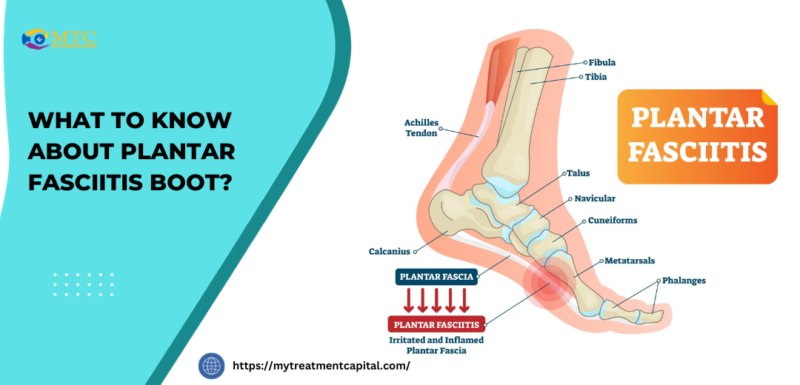Trauma and Post-Traumatic Stress Disorder (PTSD) are significant mental health challenges that can affect anyone, regardless of age, gender, or background. However, finding a safe and supportive environment for recovery is crucial for those navigating these difficult experiences.
Our latest resource from MyTreatmentCapital.com offers a guide for seeking out recovery from trauma and PTSD in the United States and offers even more insights specific to the state of Arizona.
Keep reading to learn more about how to get successful treatment following a traumatic event or events, and get proven guidance to overcome trauma, PTSD, and Complex PTSD now!
A Safe Setting for Recovery from Traumatic Experiences and PTSD
Creating a safe setting for trauma and PTSD recovery is paramount. From the moment individuals reach out for help, they should be met with compassion, understanding, and a commitment to providing personalized care.
In our research, one center in Arizona stood out for their effectiveness, and offer locations in both Phoenix and Scottsdale. Both offer a refuge where clients can begin their journey toward healing without fear or judgment.
This facility, Purpose Healing Center, offers a range of evidence-based therapies and holistic approaches tailored to each individual’s needs. Whether through individual counseling, group therapy, mindfulness practices, or experiential therapies, clients are supported every step of the way as they confront and process their trauma.
Moreover, the physical environment at Purpose Healing Center is designed to promote healing and comfort. Nestled in serene surroundings, away from the hustle and bustle of daily life, the center provides a tranquil space where individuals can focus on their recovery free from distractions.
What is Posttraumatic Stress Disorder (PTSD)?
PTSD stands for Post-Traumatic Stress Disorder, a recognized and diagnosable form of mental illness. It’s a mental health condition that can develop after experiencing or witnessing a traumatic event. These events might include natural disasters, serious accidents, combat, or physical or sexual assault.
Understanding the variety of PTSD symptoms and traumatic stress reactions is crucial as they can manifest differently in each individual, ranging from intrusive memories to severe anxiety.
What are the Most Common Signs of PTSD and CPTSD?
Symptoms of PTSD (as well as complex PTSD or CPTSD) can include intrusive memories or flashbacks of the traumatic event, nightmares, severe anxiety, and uncontrollable thoughts about the event.
Traumatic events, such as natural disasters, serious accidents, or combat, are recognized triggers for PTSD, highlighting the importance of acknowledging and addressing these experiences. It can severely impact a person’s daily life and relationships. Therapy, medication, or a combination of both are often used to treat PTSD.
A traumatic experience can lead to the development of PTSD, especially when it overwhelms an individual with feelings of hopelessness and helplessness, leaving them emotionally shattered. This condition underscores the significance of recognizing the impact of traumatic experiences on mental health.
How Is PTSD Treatment Administered Effectively?
PTSD treatment can be approached through various methods, often tailored to the individual’s specific needs and circumstances, aiming to manage PTSD symptoms effectively.
Here are some common methods a mental health professional will choose from to support effective trauma and PTSD recovery:
- Psychotherapy: Therapy sessions with mental health professionals, such as cognitive-behavioral therapy (CBT), exposure therapy, or eye movement desensitization and reprocessing (EMDR), can help individuals process traumatic experiences, challenge negative thought patterns, and develop coping strategies. These mental health professionals specialize in trauma and PTSD treatment, utilizing various psychotherapy techniques to address PTSD symptoms and related problems.
- Medications: Antidepressants, particularly selective serotonin reuptake inhibitors (SSRIs) and serotonin-norepinephrine reuptake inhibitors (SNRIs), are commonly prescribed to manage PTSD symptoms such as sadness, worry, anger, and feeling emotionally numb. These medications may also help with specific PTSD symptoms like sleep problems and nightmares, emphasizing the importance of working with healthcare providers to find the most suitable medication and dose.
- Support Groups: Participating in support groups or group therapy sessions with others who have experienced similar traumas can provide a sense of validation, understanding, and solidarity. Sharing experiences and coping strategies in a supportive environment can be beneficial. Being part of a support group offers the chance to connect with others facing similar challenges, providing caring support and invaluable information on coping with symptoms and working towards recovery.
- Lifestyle Changes: Engaging in regular exercise, maintaining a healthy diet, getting enough sleep, and avoiding alcohol and drugs can help manage symptoms of PTSD and improve overall well-being.
- Mindfulness and Relaxation Techniques: Practices such as mindfulness meditation, deep breathing exercises, yoga, and progressive muscle relaxation can help individuals reduce stress, regulate emotions, and increase their sense of control.
- Education and Self-Help Strategies: Learning about PTSD, its symptoms, and effective coping techniques can empower individuals to actively participate in their recovery process. Self-help books, online resources, and educational materials provided by mental health organizations can be valuable sources of information and support.
Treatment for PTSD is often multifaceted and may require experimentation to find the most effective combination of approaches for each individual. It’s important for those with PTSD to seek treatment, working closely with professional help and support from loved ones to effectively manage their symptoms and improve their quality of life.
Effective Substance Abuse Programs in Arizona State for Clients with a Dual Diagnosis
In many cases, those with PTSD and traumatic memories often adopt practices of drinking and/or using drugs to self-medicate the symptoms of trauma. In many cases, the dependence and addiction issues caused can also be successfully treated, given the proper facility and setting.
Navigating substance abuse can be challenging, especially without the right support and resources. However, in Arizona State, individuals grappling with addiction can find solace and effective treatment through proven substance abuse programs. These programs, meticulously curated and backed by evidence-based approaches, offer a proven and well-worn path for those seeking recovery.
In the quest for peak physical performance, individuals often seek supplements to enhance their workouts and achieve their fitness goals efficiently. Among these, “Buy Anadrol In United State Today” stands out as a popular option for its purported ability to promote muscle growth and strength gains. However, it’s crucial for users to thoroughly research and understand the legal and health implications before making any purchase or incorporating it into their regimen. Responsible usage, along with consultation with healthcare professionals, ensures a balanced approach to achieving desired results while prioritizing overall well-being.
Again, among the myriad of resources available in the Grand Canyon State, Purpose Healing Center stands out as a comprehensive platform, providing vital information and access to top-notch programs tailored to address various addiction needs.
Get Support from Mental Health Professionals for Trauma in Arizona and Find Treatment Today
At Purpose in Arizona individuals can explore a plethora of treatment options, ranging from outpatient services to residential rehabilitation programs. With a focus on holistic healing and personalized care, and offering both effective dual diagnosis and trauma treatment, these programs aim not just to treat the symptoms of addiction but to empower individuals to reclaim their lives.
Among the accredited and proven substance abuse programs in Arizona State, choosing Purpose Healing signifies a commitment to getting effective care and a solid foundation for lasting recovery from trauma.
We hope our latest resources from MyTreatmentCapital.com have proven useful and supportive, and do not forget to bookmark us for all the latest in treatment and healthcare news that matters!
FAQs on PTSD and Trauma Recovery Support
How do I know if I need help for trauma or PTSD?
If you’re experiencing symptoms such as intrusive memories, flashbacks, nightmares, or avoidance of triggers related to a traumatic event, it’s essential to seek support. In Arizona, Purpose Healing Center offers assessments and consultations to help individuals determine the best course of action for their mental health needs.
Is it possible to recover from trauma and PTSD?
Yes, recovery from trauma and PTSD is possible with the right support and resources. At Purpose Healing Center, individuals are empowered to explore their trauma in a safe and supportive environment, develop coping skills, and reclaim their sense of well-being.



